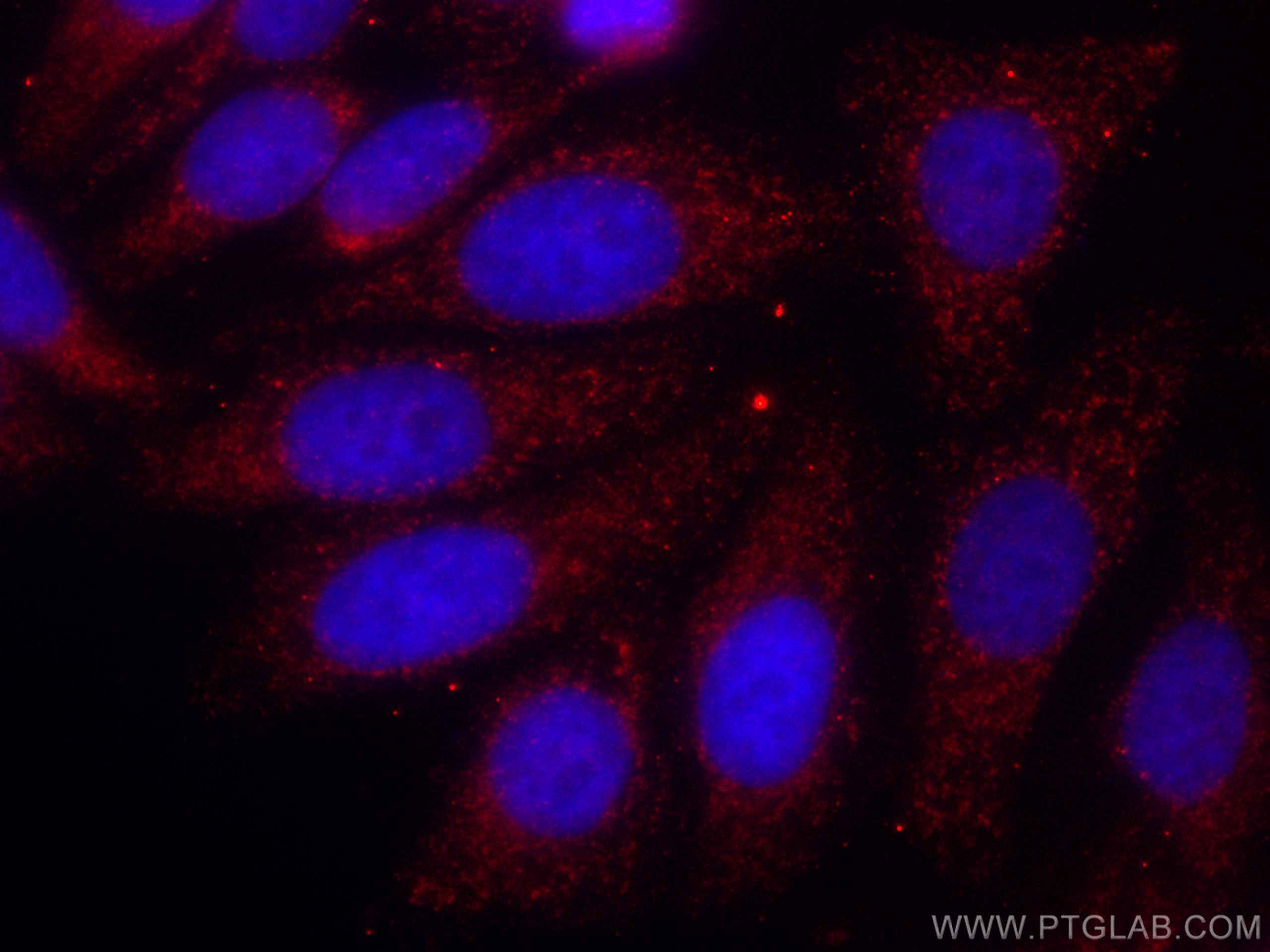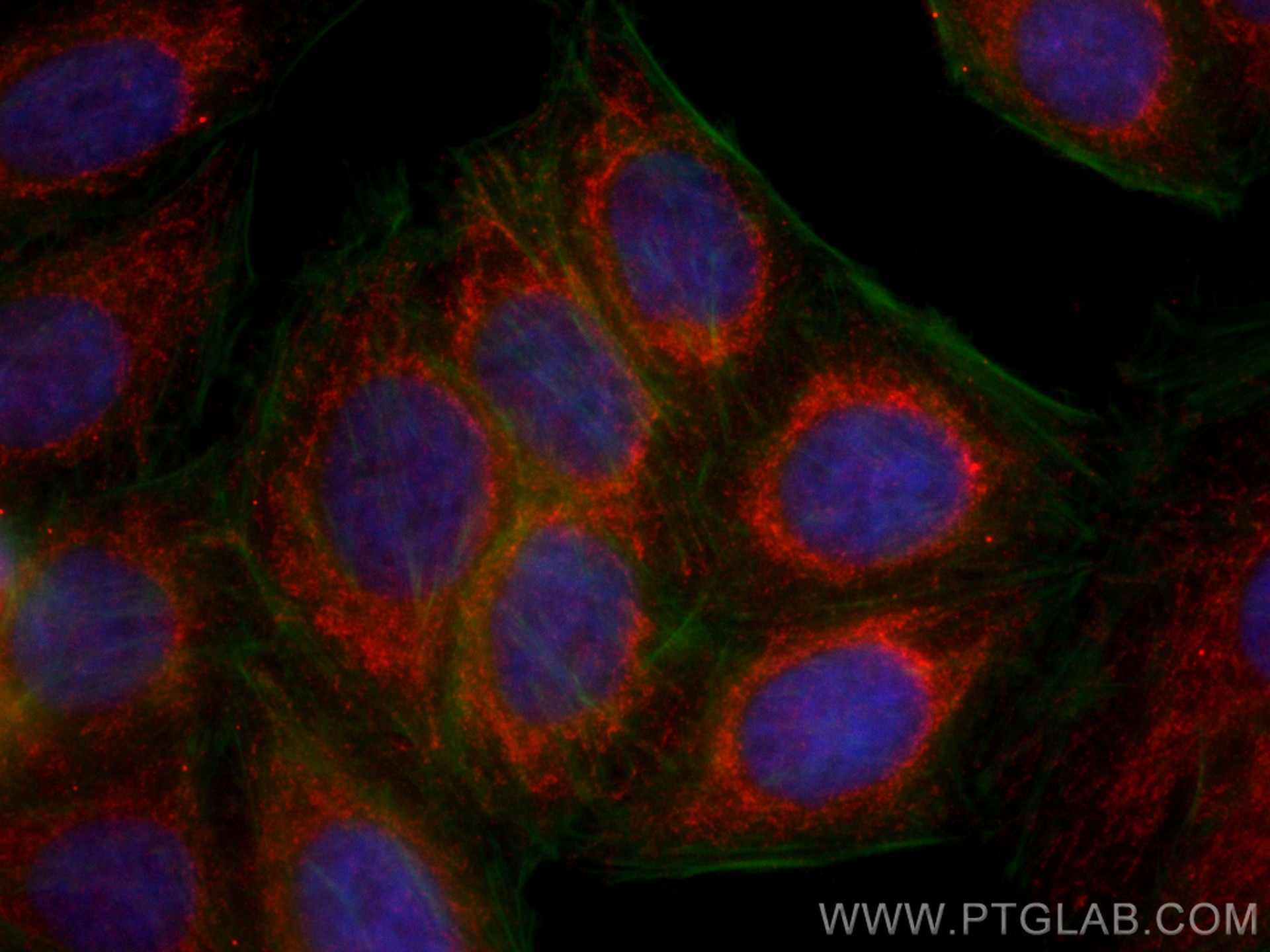Tested Applications
| Positive IF/ICC detected in | HepG2 cells |
Recommended dilution
| Application | Dilution |
|---|---|
| Immunofluorescence (IF)/ICC | IF/ICC : 1:50-1:500 |
| It is recommended that this reagent should be titrated in each testing system to obtain optimal results. | |
| Sample-dependent, Check data in validation data gallery. | |
Product Information
CL594-60284 targets ATP5C1 in IF/ICC applications and shows reactivity with human samples.
| Tested Reactivity | human |
| Host / Isotype | Mouse / IgG2a |
| Class | Monoclonal |
| Type | Antibody |
| Immunogen |
CatNo: Ag1343 Product name: Recombinant human ATP5C1 protein Source: e coli.-derived, PGEX-4T Tag: GST Domain: 1-298 aa of BC000931 Sequence: MFSRAGVAGLSAWTLQPQWIQVRNMATLKDITRRLKSIKNIQKITKSMKMVAAAKYARAERELKPARIYGLGSLALYEKADIKGPEDKKKHLLIGVSSDRGLCGAIHSSIAKQMKSEVATLTAAGKEVMLVGIGDKIRGILYRTHSDQFLVAFKEVGRKPPTFGDASVIALELLNSGYEFDEGSIIFNKFRSVISYKTEEKPIFSLNTVASADSMSIYDDIDADVLQNYQEYNLANIIYYSLKESTTSEQSARMTAMDNASKNASEMIDKLTLTFNRTRQAVITKELIEIISGAAALD Predict reactive species |
| Full Name | ATP synthase, H+ transporting, mitochondrial F1 complex, gamma polypeptide 1 |
| Calculated Molecular Weight | 33 kDa |
| Observed Molecular Weight | 33 kDa |
| GenBank Accession Number | BC000931 |
| Gene Symbol | ATP5C1 |
| Gene ID (NCBI) | 509 |
| RRID | AB_2919912 |
| Conjugate | CoraLite®594 Fluorescent Dye |
| Excitation/Emission Maxima Wavelengths | 588 nm / 604 nm |
| Form | Liquid |
| Purification Method | Protein A purification |
| UNIPROT ID | P36542 |
| Storage Buffer | PBS with 50% glycerol, 0.05% Proclin300, 0.5% BSA, pH 7.3. |
| Storage Conditions | Store at -20°C. Avoid exposure to light. Stable for one year after shipment. Aliquoting is unnecessary for -20oC storage. |
Background Information
ATP5C1(ATP synthase subunit gamma, mitochondrial) is also named as ATP5C, ATP5CL1 and belongs to the ATPase gamma chain family. Some scientists reported the complete sequence of the gene for the human ATP synthase gamma subunit and described tissue-specific isoforms of the subunit generated by alternative splicing of exon 9. The liver (L) isoform differed from the heart (H) isoform by the addition of a single amino acid (asp273) at the C terminus. (PMID:8227057).
Protocols
| Product Specific Protocols | |
|---|---|
| IF protocol for CL594 ATP5C1 antibody CL594-60284 | Download protocol |
| Standard Protocols | |
|---|---|
| Click here to view our Standard Protocols |






